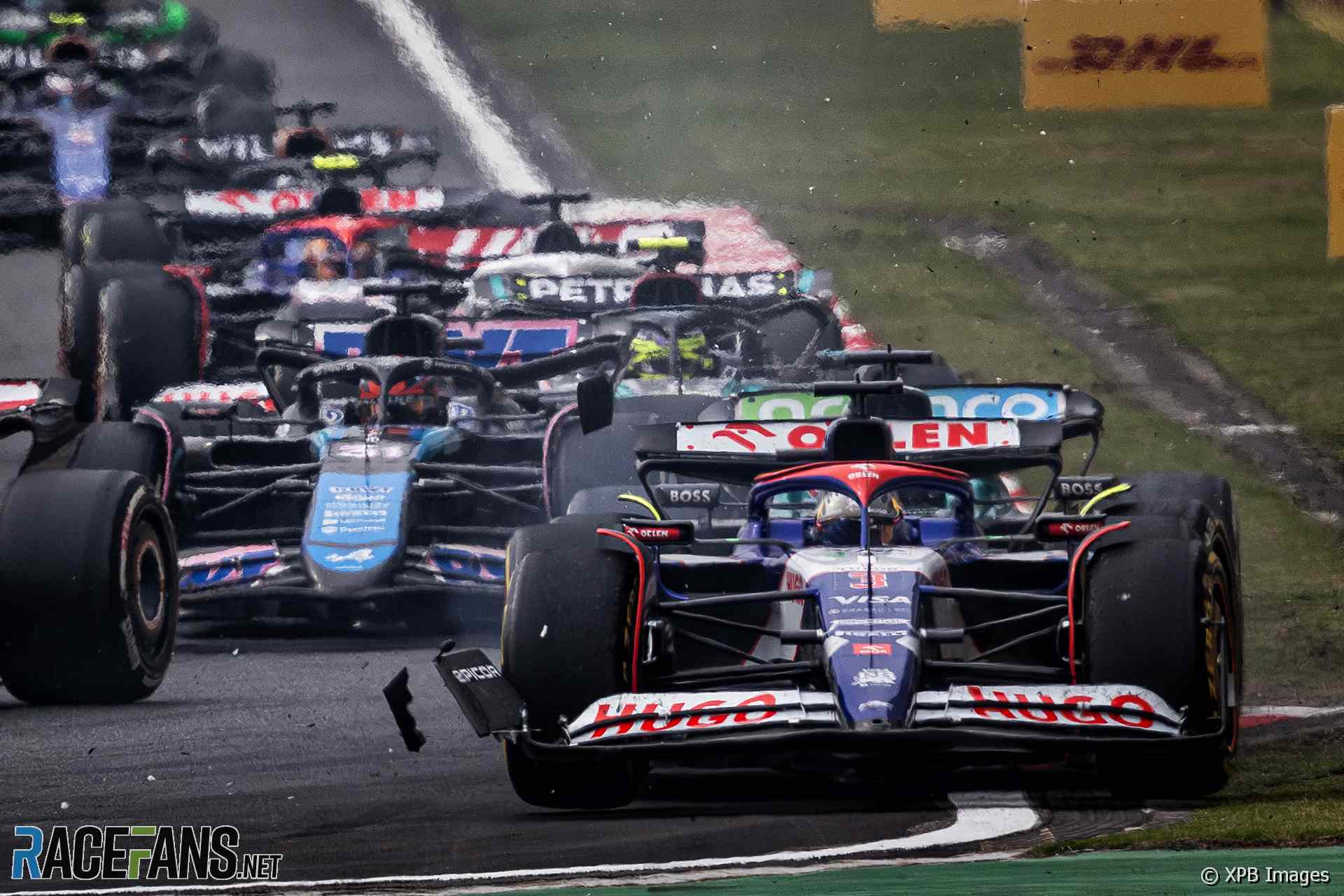The Tightrope of Temptation: How F1's 2024 Penalty Surge Threatens Driver Careers

The stakes in Formula 1 have never been higher. In the complex ballet of speed and precision that defines the sport, 2024 has introduced a game-changing variable: a stringent penalty point system that has dramatically heightened the risk of race bans for F1's elite drivers. This evolution, most notably felt at the Chinese Grand Prix, has thrown the F1 community into a whirlwind of speculation and concern.
Starting off with a bang, the season's penalty points issued by stewards have seen a jaw-dropping nine-fold increase compared to the previous year. From a mere two penalty points in the first five races of last year, we've rocketed to a staggering 18 in the same period this year. The bulk of these points were distributed in a dramatic weekend at Shanghai, placing unprecedented pressure on the drivers.
At the heart of this controversy are the new guidelines enforced by FIA stewards. With collisions being the primary offense, the FIA's tightened grip on rule enforcement has been a shock to the system. This shift responds to drivers' previous criticisms regarding the leniency of five-second penalties, but has it gone too far?
 Daniel Ricciardo at the Shanghai International Circuit, 2024" />
Daniel Ricciardo at the Shanghai International Circuit, 2024" />Several drivers are teetering on the edge of suspension, with the likes of Logan Sargeant and Sergio Perez uncomfortably close to the 12-point mark that triggers a mandatory race ban. Fernando Alonso, a seasoned veteran, has found himself surprisingly ensnared by this new regulatory web, accumulating penalty points at an alarming rate.
One must consider the broader implications of this strict enforcement. On one hand, it underscores a zero-tolerance stance on reckless driving, potentially enhancing race safety. On the other, it threatens the trajectory of drivers' careers, instilling a fear of engagement that could sterilize the racing itself. Where is the balance between discipline and the inherent risk that defines motorsport?
The Chinese Grand Prix of 2024 has brought this debate into sharp focus. As the rules tighten around the throats of F1's best, the question arises: are we witnessing a shift toward an overly sanitized version of the sport? One that prioritizes order at the expense of the raw competition that has captivated fans for generations?
Previous Sanctions and the New Era
Historically, the penalty point system has hovered in the background, a distant threat that rarely materialized into actual race bans. This has changed drastically with the 2024 season. Notably, Formula 2 has seen its fair share of bans under similar rules, indicating a potential future for F1 that many had not anticipated.
Pierre Gasly's narrow escape from a ban in 2022 under the earlier, more lenient system serves as a poignant reminder of how quickly fortunes can change under the new regime. With the bar now raised, every move on the track is a gamble, and the cost of a misstep has never been higher.
As we navigate this new landscape, one thing is clear: the F1 of tomorrow will be a world where precision and caution trump the daring do-or-die maneuvers of the past. The challenge for drivers, teams, and the governing body alike will be to find that delicate balance that preserves the essence of Formula 1 while ensuring the safety and fairness of the competition.
In a sport where tenths of a second can define a career, the increased imposition of penalty points in 2024 is more than a mere rule change; it's a philosophical shift that could redefine Formula 1 as we know it. The impact of this year's Chinese Grand Prix will reverberate throughout the season, setting the stage for a high-stakes drama where every action has consequences, and the line between hero and zero is thinner than ever.